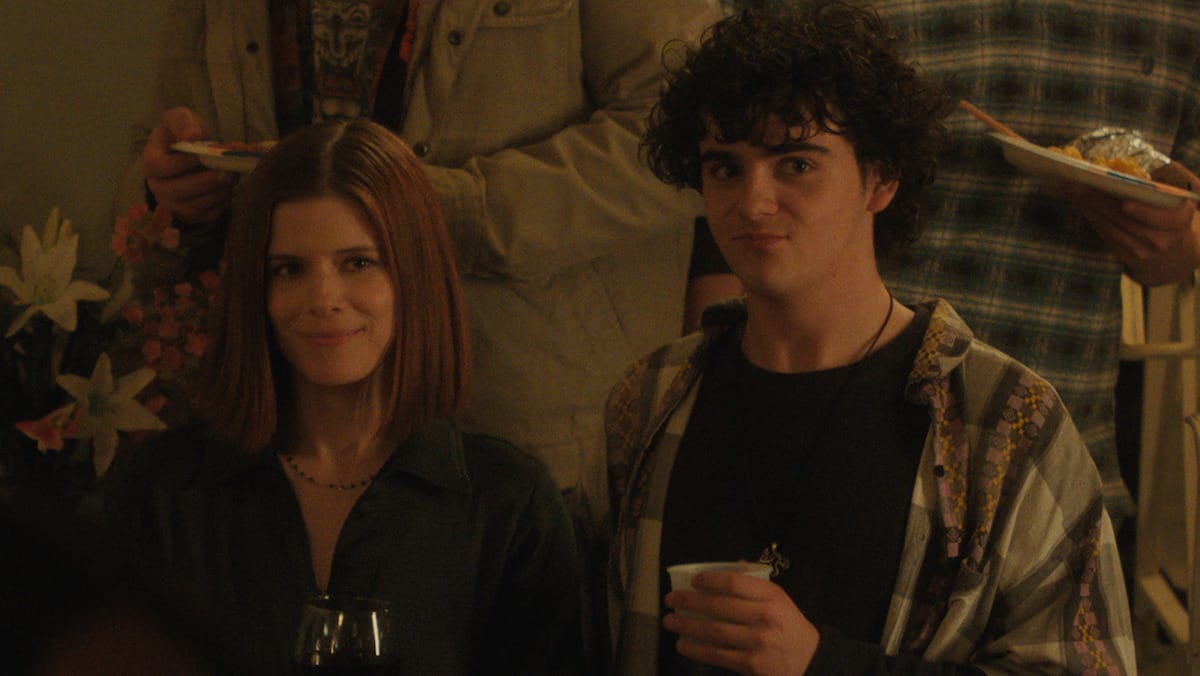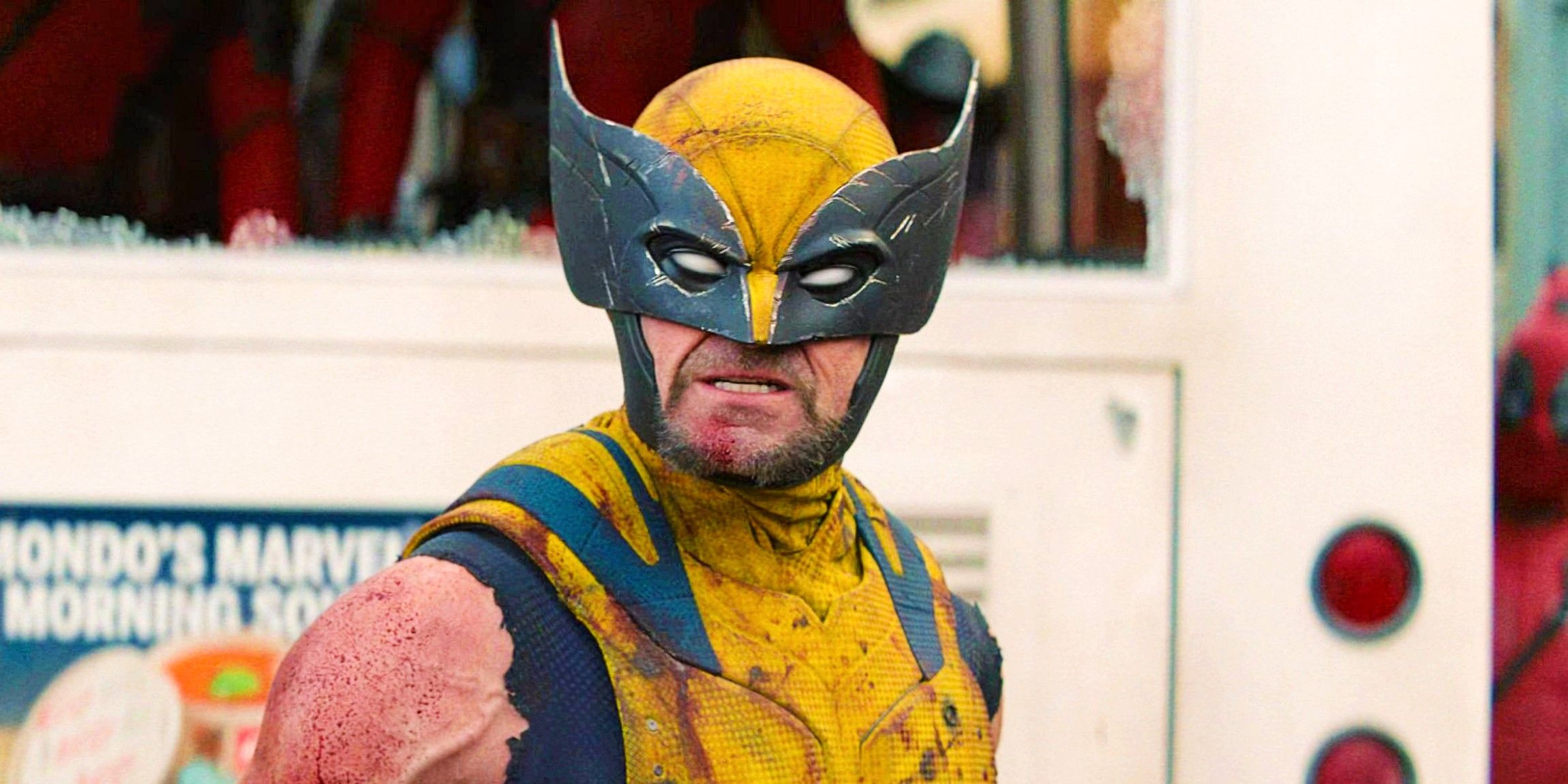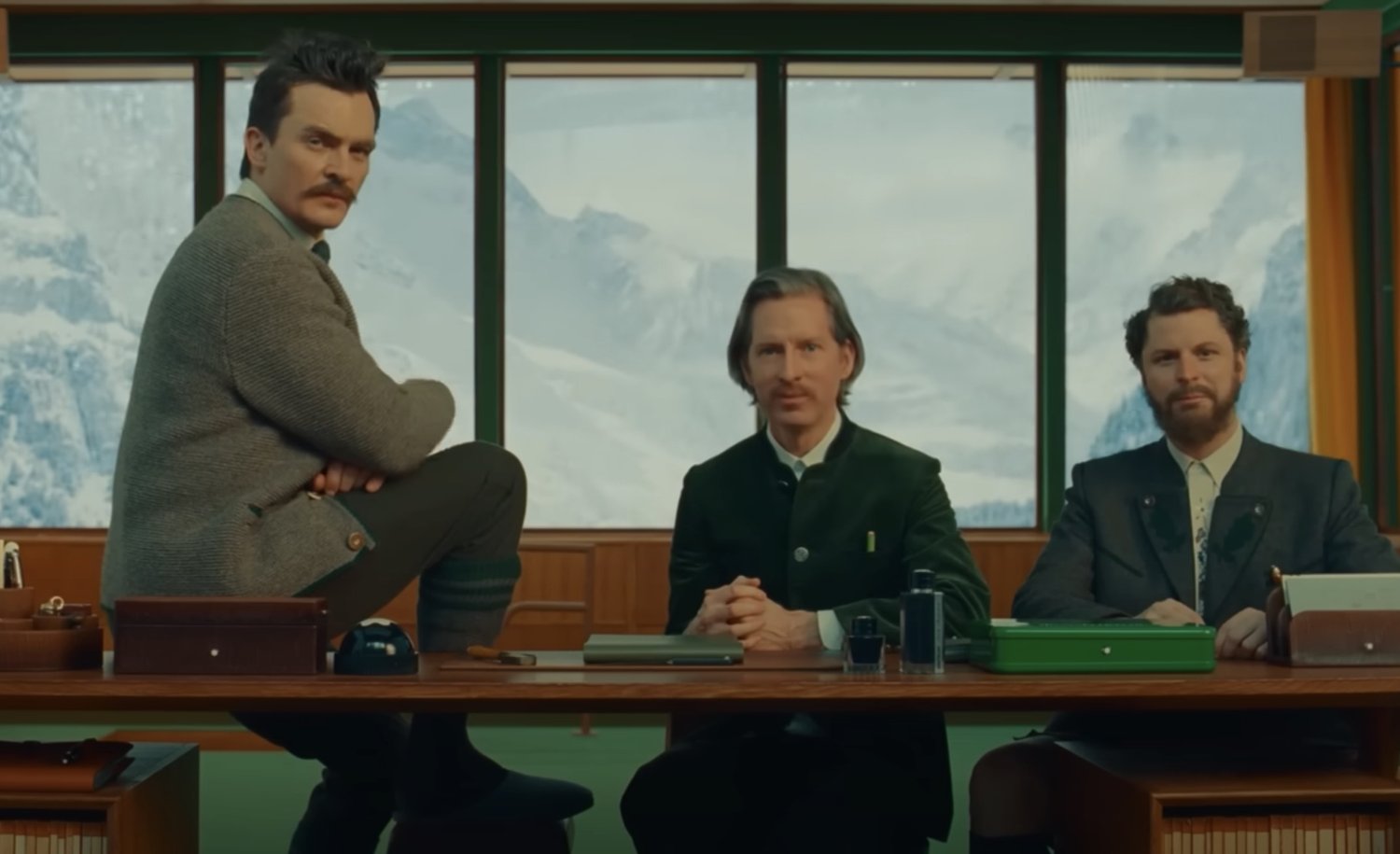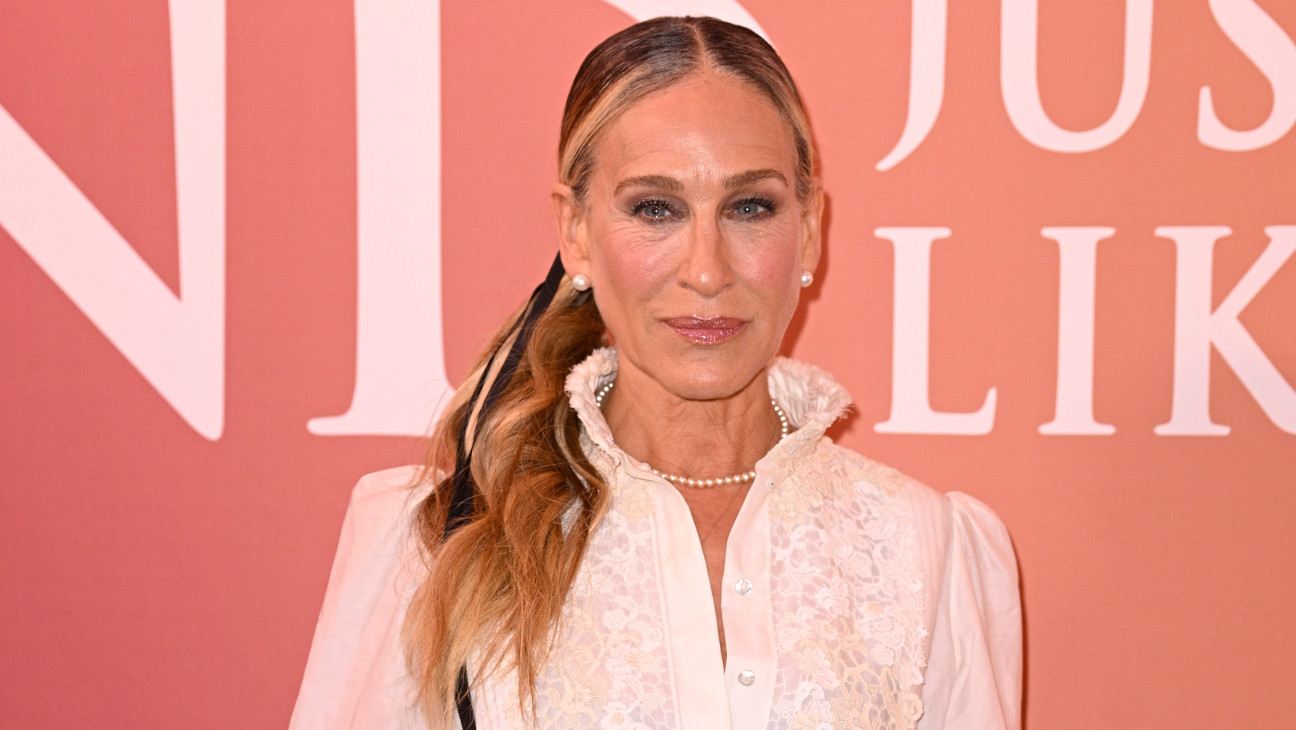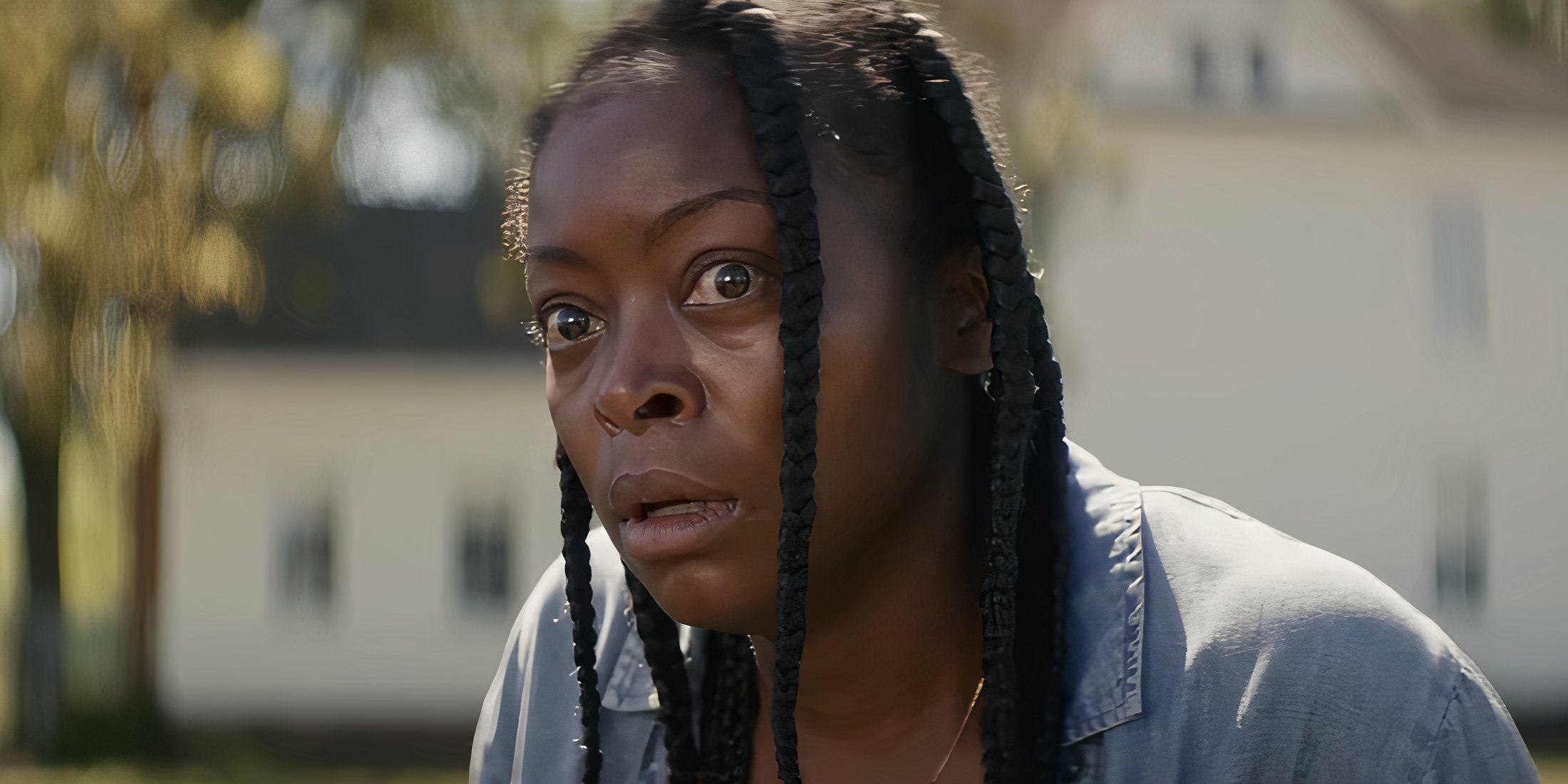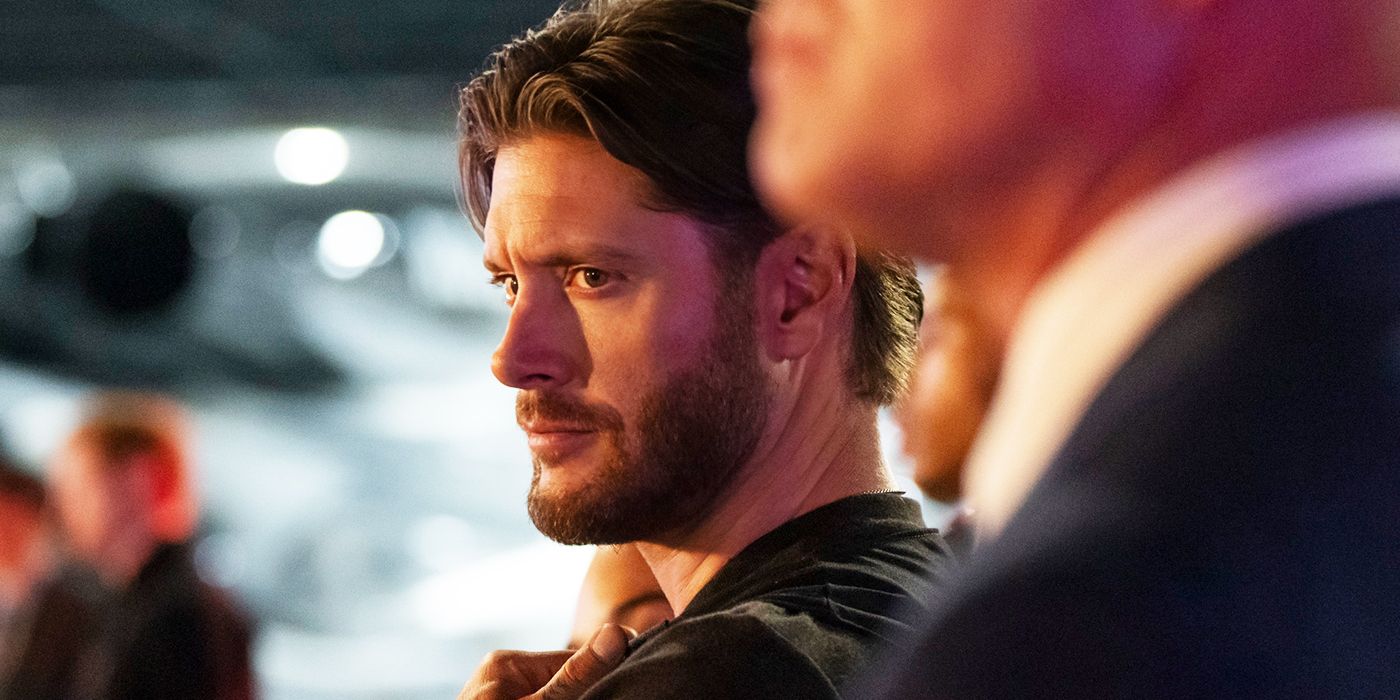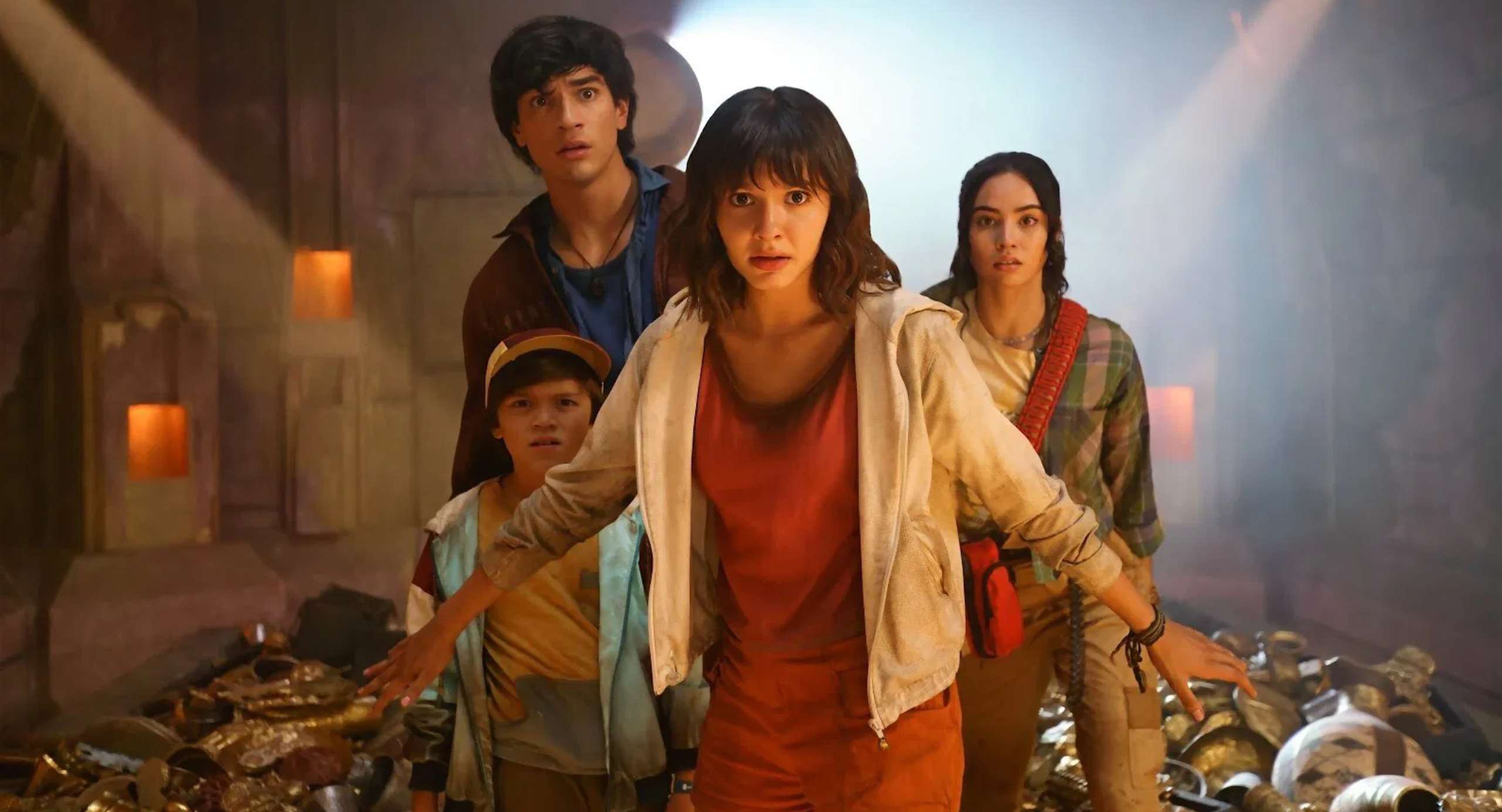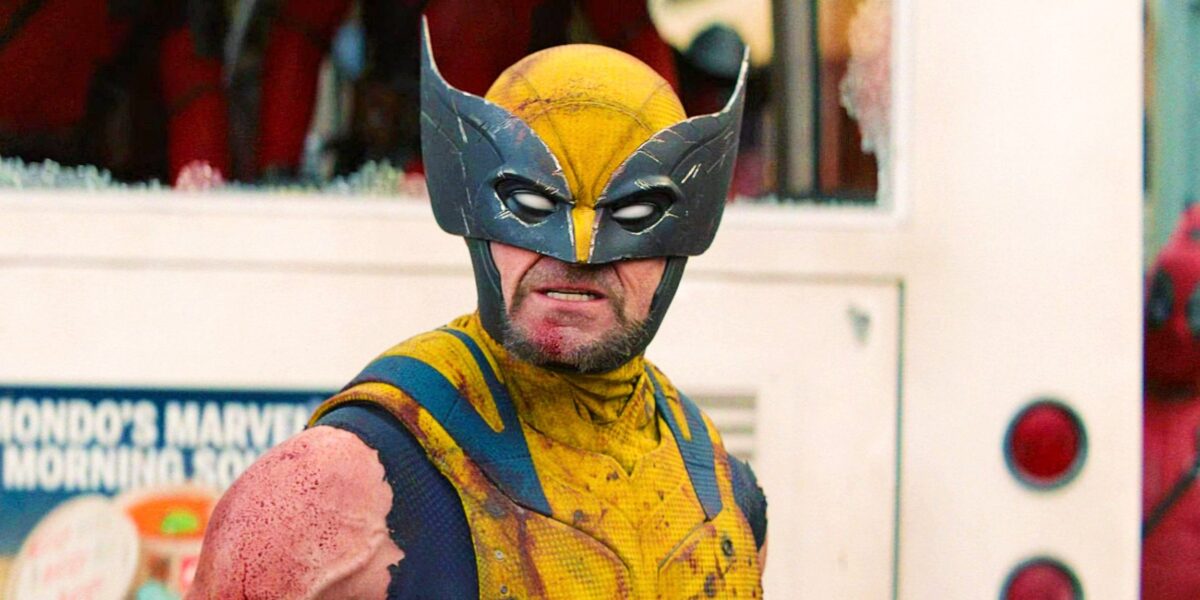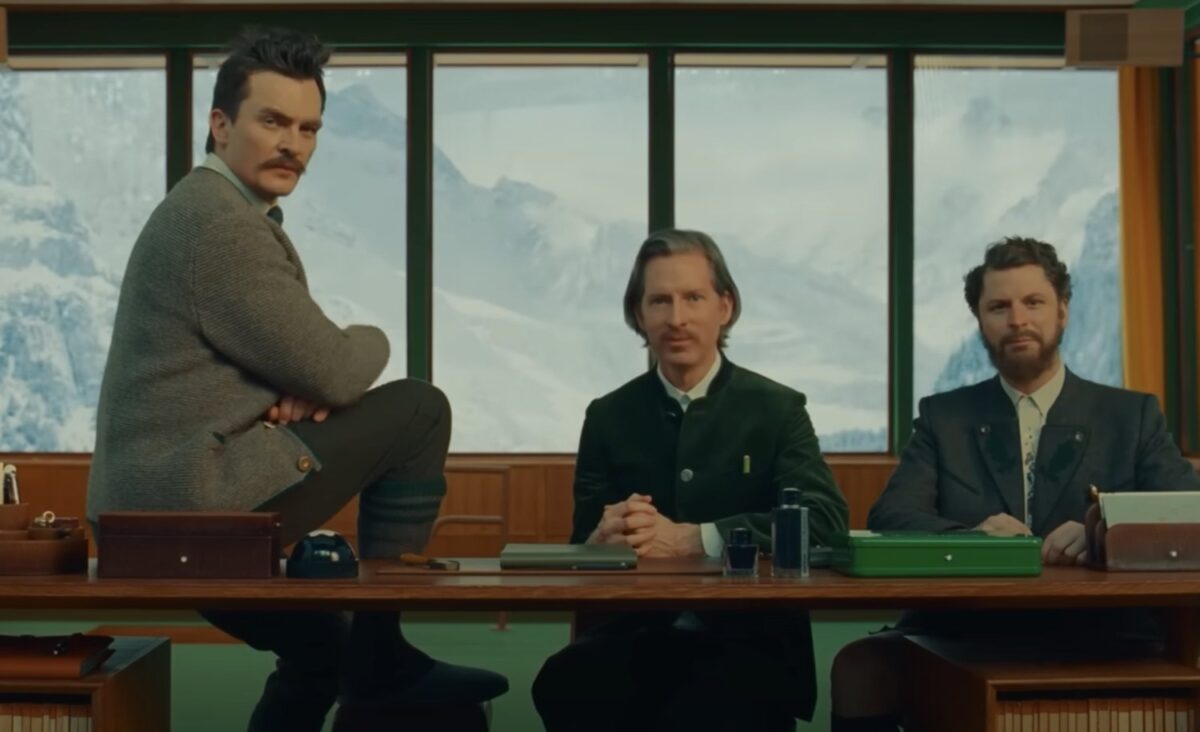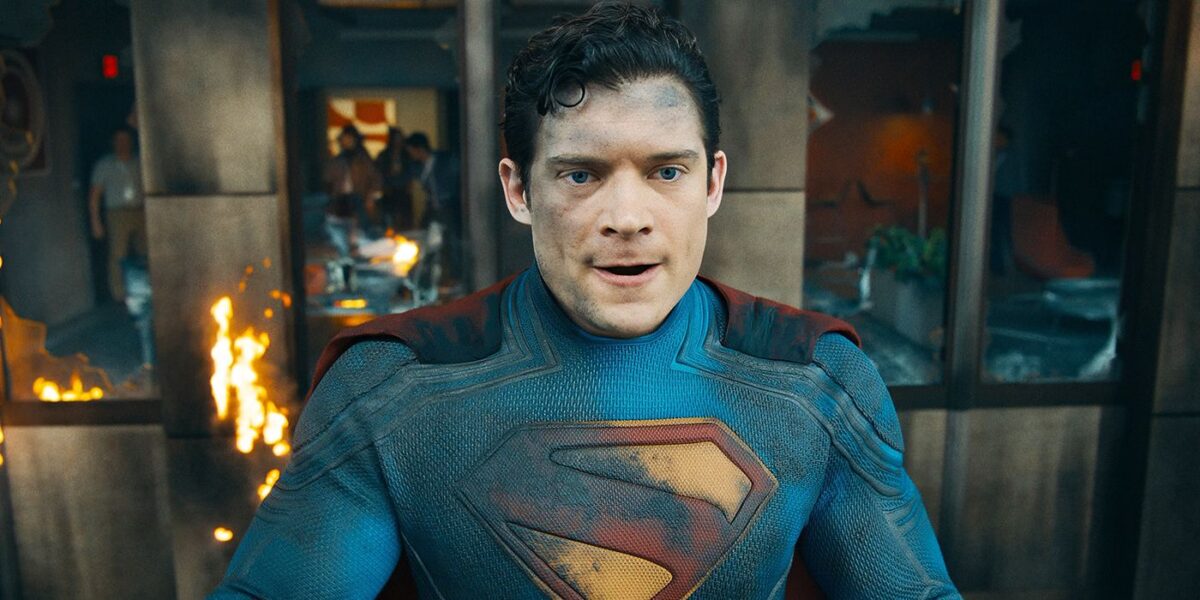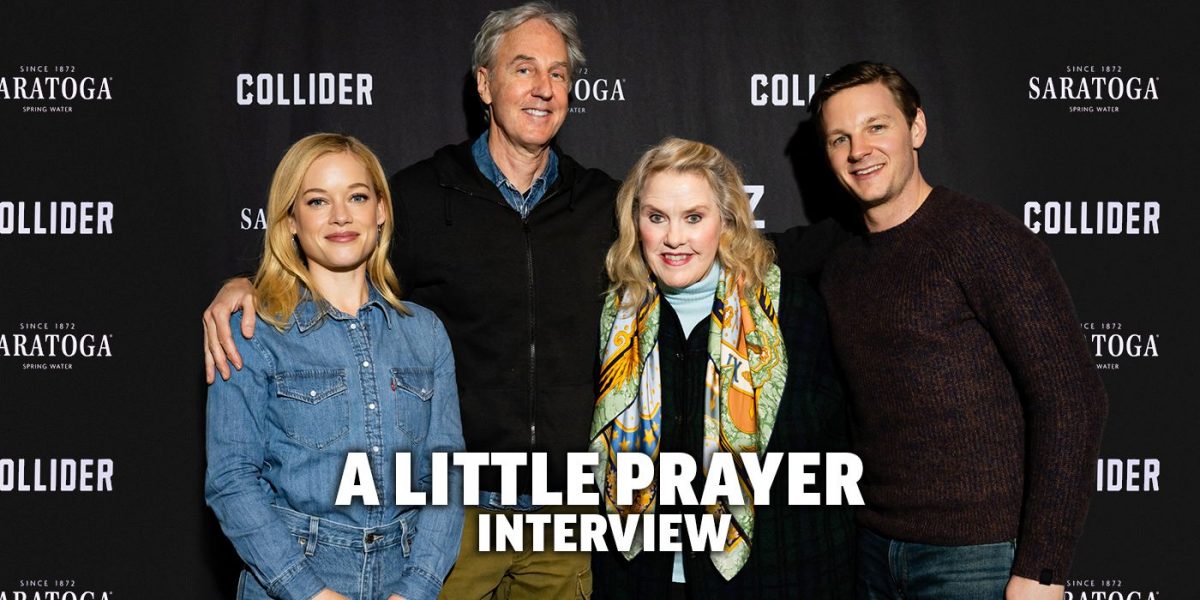
Jane Levy on Working with a Mensch Like David Strathairn
Feb 19, 2023
A Little Prayer marks yet another winner for Angus MacLachlan at the Sundance Film Festival. His first feature as screenwriter, Junebug, scored a Grand Jury Prize nomination at the festival and also went on to earn Amy Adam her very first Oscar nomination. Now he’s back in Park City with a film he wrote, directed and produced, and it’s being showered in critical praise and also scored distribution via Sony Pictures Classics.
A Little Prayer stars Jane Levy as Tammy, a woman living in Winston-Salem, North Carolina with her husband, David (Will Pullen), and his parents, Bill and Venida played by David Strathairn and Celia Weston. When Bill becomes suspicious of David’s loyalty to Tammy, he struggles to both understand his son and protect his daughter-in-law.
COLLIDER VIDEO OF THE DAY
While celebrating A Little Prayer’s big debut at Sundance 2023, MacLachlan, Levy, Weston, and Pullen visited the Collider Studio presented by Saratoga Spring Water to recap their experience bringing the piece from script to screen. During the chat, everyone praised Strathairn’s work in front of the lens and emphasized that he’s a wonderful person off-camera as well, Levy described her experience filming an especially challenging scene on a particularly devastating day, MacLachlan discussed his approach to directing actors as an actor himself, and so much more.
You can hear all about it straight from MacLachlan, Levy, Weston, and Pullen in the video at the top of this article or you can read the transcript of the interview below.
Image via Sundance
I was reading that you started working on the screenplay in 2016. What would you say is the biggest difference between how you envisioned the film turning out back then and what you wound up with in the end?
ANGUS MACLACHLAN: What an interesting question. Gosh, it went through a lot of different permutations but, you know, you dream a certain dream and then you claw your way towards the finish line, and I can’t imagine a better cast. We shot where it takes place in my hometown of Winston-Salem. I can’t really tell you how it’s different than when I envisioned it. It’s just that it exists at all is great. [Laughs]
Every single film is a miracle! Throughout that process of trying to get a green light, what would you say was the low point, a time that made you think, ‘This might not happen,’ and how’d you overcome it?
MACLACHLAN: Yeah, there were two or three times where it was just completely dead in the water and I had other producers who said, ‘We can’t get this made,’ and they left. And then the great Lauren Vilchik came on and said, ‘There’s always a way,’ and then Max Butler came on. And, you know, COVID happened, which was a big thing, which put everything in purgatory for a year and a half at least. So all of those things, which I’m sure is the story of every film this year at Sundance.
There is a lot of that and I’ve asked this question to a couple others who encountered those kinds of challenges. I don’t love looking for silver linings in the pandemic, but I do find that when you strip away the things that you’re used to having, you can find new corners of your craft that you wouldn’t have otherwise. So for each of you, is there anything new you discovered due to not having those typical things on set?
WILL PULLEN: I feel like because of COVID we were there pretty much the whole time we shot, so that for all of us, I think in different ways, we got to explore Winston-Salem a little bit, which was certainly helpful for me to take in the town and the area and the nature in the area. To kind of put it all in our collective DNA was super helpful. I think probably with busy schedules and before COVID, we would have been more in and out, so that was a really nice thing we got to have.
CELIA WESTON: And Angus is excellent at taking these intimate families and what, on the surface, looks commonplace and the dreaded word, average, but then he finds what’s unique about them and beautiful and intimate, and their struggles are monumental to them. He gives us those characters to play and it’s a gift to have.
Celia, I know you’ve worked with Angus before. What’s something about his work as an actor’s director that’s stayed the same and what’s something he did on A Little Prayer that made you go, ‘Wow, I never realized you were capable of that?’
WESTON: I’ll just repeat what you said; he’s an actor’s director. I said this earlier, I think he’s a beautiful writer, but that he is also an actor and he honors that and those that he invites to be with him. And he looks to their ingenuity, he wants it, depends on it, invites it. That’s like bonanza time for an actor.
Image via Photagonist
Will and Jane, to expand on that, do you remember a time on set when Angus’ approach to directing his actors invited you to bring something else to your characters that wasn’t originally on the page?
JANE LEVY: I’m not sure I can think of a specific moment, but something that is so special and moving to me about Angus as a writer and a director is that it feels as if he has profound respect for the characters he writes. And, you know, the characters are flawed, as all humans are, but there’s no political or moralistic point of view that he’s trying to — he just lets people be and in their humaneness I find them to be — I love these characters so much. And it makes playing them really meaningful. They’re humans with a lot of need, and I just feel really lucky to have been a part of this.
PULLEN: I don’t know that there was a specific moment. Angus and I were trying to figure out in the car when exactly we first started talking about the film and I just felt like since that first [meeting], it was over zoom, it felt like this really gentle collaboration where there was a lot of room for both of us to ask questions and explore together. So by the time we got to set, I think it was like a year and a half later, I felt really at ease because there’s a lot of darkness in this film, so it’s a really vulnerable place to be so I feel like Angus did a really fantastic job of letting us all feel safe, taken care of, at ease to explore those darker areas of all the characters.
Angus, leaning into what Jane just described, someone recently brought up the idea of movies having a participatory quality, and I really appreciate when a filmmaker isn’t judging anyone. They lay out a full story and let the audience assess for themselves. How do you go about achieving that feeling while making sure you’re still giving your audience a full experience?
ANGUS: I am an actor. Was an actor for a number of years, and I was always really frustrated when [with] a role you just had one or two things to play. I always want to create characters that have a wide range and you don’t judge them. You see their weaknesses, you see their strengths, you see their charm, you see their evilness if they have that, so that’s really important to me. And also once I became a film director, I really understood how vulnerable actors are on screen, that a director can really make you better and worse than what you’re doing, and you just sort of fling yourself out there and trust. So I really feel for actors because I’m one of them and that’s just really important to me, and that’s why I really love actors. There are so many great films with non-actors that I love, but I really love working with actors because they can hold more than one thing at the same time and express lots of different levels at the same time. And so I generally am drawn to actors who are trained, who know what they’re doing and also almost always have some sort of sense of humor, which I think is fundamentally important, even if it’s a dramatic piece or not.
You do have quite the ensemble here and, of course, we have to talk about David. Jane, I’ll throw this your way. What is something about him as a scene partner that you appreciated and maybe helped bring something out of your own character that you wouldn’t have been able to without him?
LEVY: I just felt very safe. Again, I don’t know why I keep using this word, but respected by him. We had to create a pretty loving, intimate bond quickly because it’s an independent film. We don’t have a lot of rehearsal time and a lot of days of shooting, and I just found his talent and his kindness helped me be a better present actor in my scenes. It turns out, also, he’s from my town that I’m from.
I lived in the same New York City apartment building as him for a little while when he was doing a show, and that’s just my little claim to fame. [Laughter]
Image via Photagonist
Bringing up the idea of not having a lot of time, what particular scene did you want to carve out the most time for yourself to prep for?
PULLEN: I think especially for the character of David, Angus and I had spoke about finding the moments in the film where we really get to see him and not the character he’s putting on for the world. So there’s a scene of him leaving the factory with his dad that, from the beginning, we had talked about. And there’s two scenes with his dad where David sort of drops his facade and is really vulnerable and allows, briefly, himself to be seen by his father. Angus and I talked about that a lot. For me, a lot of the prep work was to build to that moment and have that moment kind of live throughout the entire film.
WESTON: It’s with David as well. It’s towards the end of the film and it’s the most cataclysmic scene they have. And I liked that we see throughout the film that they are partners and they’re friends and they have respect for each other and they’ve built something they’re proud of, and this was something that I felt my character had to shake him to understand what had happened to them, really. The ramifications of it and the tragedy of it. And that was an altercation. But, you know, they made it through it and it’s not the first one they had.
LEVY: Interestingly enough we shot the scene where my character is in the doctor’s office having an abortion the day that the Supreme Court reversed Roe v. Wade. As actors, I think we can all relate, you have a scene in any project that you’re about to work on that you have a lot of anticipatory anxiety about, you’re like, ‘Oh, this is the scene that I have to deliver this,’ and oftentimes we put pressure on ourselves that don’t need to be there. So for this scene, I have my own baggage when it comes to this subject and you could argue that my character’s climax is at the end of this movie, I think it’s the scene where she’s in the doctor’s office. But anyways, I had all this tension and anxiety about the scene never knowing that that piece of news was gonna come out. So anyways, I was in the green room — again, it’s an independent film, we didn’t really have green rooms or holding areas, and I was waiting to shoot the scene and I got a text from my mom. I guess I’m naive, but I really wasn’t expecting that at any point. And so that scene, there was a collective grief and rage that, I don’t know, I can’t believe that that timed out that way.
WESTON: Life meets art.
I vividly remember everything I did that day, so to know how it lined up with the work you were doing, I can’t even compute how you pushed through that.
LEVY: Well, I have to say, I was really grateful. I feel super, super grateful that I’m an artist and that I get to make movies with these feelings.
MACLACHLAN: And, you know, when we’re doing this doing this today, tomorrow is the 50th anniversary of Roe vs. Wade, and then we premiere on Monday, so it’s a really strange reality that we’re dealing with.
I still can’t wrap my head around that reality.
Image via Photagonist
Angus, I wanted to ask you about your visual language here. A lot of the movie has moments where you’re letting a character do their day-to-day, you have people come in and leaving frame. What was it like figuring out the right way to capture this family and how they operate?
MACLACHLAN: We had a great cinematographer, Scott Miller, who I adore, and he was the only one, really, I felt when we were making the film [that] understood what I was trying to do. I drove the continuity person a little bit — because she’d say, ‘Well, you didn’t catch this.’ We did a lot of oners, we just did one shot, and that’s because I love actors and I love seeing behavior. And also, there’s a lot of filmmakers who I really adore like Jean Renoir and Mike Leigh who like long takes so that you can see behavior. So that was a real intentional thing.
And for me, to answer your other question, what concerned me the most, we didn’t have any wiggle room [in the schedule]. There’s like 11 scenes in the kitchen and I was like, ‘Oh my god, how are we gonna do that?’ And a lot of them are the early morning routine that these people have done for years and we had no rehearsal. And so it was choreographing who goes where, especially Jane, who had to make breakfast and fill pill boxes and have dialogue and do everything, and she’s incredible at this. It would be the morning and I’d say, ‘Okay, now you go over here,’ because I’ve mapped it all out in my head, ‘and you’re gonna make this and take the lettuce over here and then you put in here, and here’s a bag, and make sure the bags don’t wrinkle too much because the sound person will be mad, and then sit down and do this,’ and she’d go, ‘Okay.’ And she’d just do it!
I can’t even remember my own daily routine on a regular basis so I’m impressed that you could do that!
LEVY: I just finished a TV show where I had to learn dance choreography.
Exceptional in Zoey’s Extraordinary Playlist. I’ll keep blabbing about that show because I want to will more into existence.
LEVY: Thank you.
You don’t get nominated for an Emmy and not do more.
LEVY: NBC, Roku. [Laughs]
I’m a big cheeseball and I find that we don’t say ‘good job’ to people in this industry nearly enough, so on this film, whether it’s an actor or someone behind the scenes, can you each name someone who absolutely crushed their work and you want to say good job to them?
MACLACHLAN: All of them. And I just completely believe that the fish stinks from the head and that the director can set a tone where people are appreciated. I was an actor and then a screenwriter for a long time and you are treated like shit when you’re a screenwriter generally, and I had been. And I just felt like when I became a director, everyone is important. And you’re always trying to capture lightning in a bottle. You never know how it’s gonna turn out, but for our 19 days that we were together, why does it have to be miserable? And I feel like when I was an actor, you do your best work when you feel safe and you feel appreciated.
But I do have to say that, really, Scott Miller to me was just a yeoman. He’s the calmest person. I had never worked with him before, my cinematographer, and I might have an idea and it wasn’t quite his, he would most gently suggest his, and if I said, ‘No, that’s not right,’ he’d go, ‘Okay, fine,’ and he would interpret. There was one scene with Celia where we were shooting upstairs in like 98 degrees without air conditioning and the dolly wasn’t high enough, so he had to stand on boxes and bend his knees to a plie, a deep plie, to get this shot before it goes down close to her. And he’s sweating, he’s pouring sweat, and when I watched the footage too, I was like, ‘What’s that sound?’ And it’s him breathing so heavily with a camera on [him]. He’s my most valuable player on the scene.
WESTON: He was, and his temperament was delightful.
Image via Photagonist
LEVY: There was a lot of students from, what’s the name of the college?
MACLACHLAN: University of North Carolina School of the Arts. [Points to Weston] We’re both alumni.
LEVY: Yes! Sorry and thank you. [Laughs]
WESTON: One of the leading film schools in the world, by the way.
LEVY: The students that were working on the film were incredible and they were learning on the job and I’m so grateful for everything that they contributed.
PULLEN: I would say our crew. They made so much with so little. It didn’t feel this way, I think because of Angus and our producers and the crews’ attitude, but we had no wiggle room. And so to see them all moving, and a lot of students within the crew, it was one cohesive organism. All I had to do is walk in and pick up a juice, so I got to sit and watch everybody and everyone just had the best attitude. Everything felt really kind and respectful.
MACLACHLAN: I’ll just also mention David Strathairn who is everything you imagine him to be. He’s a complete mensch and involved and spoke to everyone and never went away, and always his questions were an actor’s questions. You know, you’re supposed to not meet your idols, and I wouldn’t say he was an idol, but he really lives up to what you imagine. And I really needed for that character for someone who you could believe was a man of great rectitude and respect and gravity, who is trustworthy, who’s trying to do his best, and he not only is a terrific actor, but really a terrific person. He can’t be here because he’s doing a one-man show called Remember This: The Lesson of Jan Karski in Poland. So that’s why he’s not here.
Special thanks to our 2023 partners at Sundance including presenting partner Saratoga Spring Water and supporting partners Marbl Toronto, EMFACE, Sommsation, Hendrick’s Gin, Stella Artois, mou, and the all-electric vehicle, Fisker Ocean.
Publisher: Source link
Friendship Director Andrew DeYoung on the Father of Craig and Tami’s Son
Friendship, the debut feature from Andrew DeYoung, is one of the funniest and most uncomfortable films in years, and if you subscribe to one particularly dark reading of the film, it’s even more uncomfortable. And even more funny. Warning: Friendship…
Jul 12, 2025
I Did Meet With Kevin Feige
A beloved actor among fans to take over as Wolverine in the Marvel Cinematic Universe has detailed his talks with the studio. Hugh Jackman has become synonymous with Wolverine in live-action. The actor not only played the main role in…
Jul 11, 2025
Wes Anderson Directs Himself (Literally) in New Montblanc Short Shot by Darius Khondji — GeekTyrant
The The Phoenician Scheme director Wes Anderson isn’t slowing down. The director has dropped another visually delightful project and this time a short film made in collaboration with Montblanc, and yes, Anderson actually steps in front of the camera to…
Jul 10, 2025
James Gunn’s Superman’s Rotten Tomatoes Debut Sparks a Surprisingly Unanimous Reaction
When James Gunn got the Superman gig, the question would always be whether he would help the Man of Steel take flight, or crash-land. This is a guy who got his start writing gory, low-budget horror films for Troma and…
Jul 9, 2025
